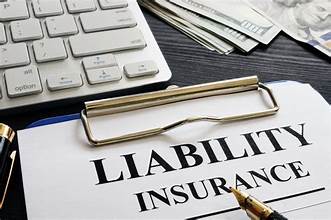Liability insurance is a crucial component of financial protection for individuals and businesses. It provides coverage in the event that you are held legally responsible for causing harm to others or their property. This guide will explain what liability insurance is, its various types, and how it can benefit you, along with answers to frequently asked questions.
What is Liability Insurance?
Liability insurance is a type of insurance that protects you from claims resulting from injuries or damage to other people or their property. It covers legal costs and payouts for which you may be held responsible. The primary goal of liability insurance is to offer financial protection against the risks of being sued.
Types of Liability Insurance
- Personal Liability Insurance: This type of insurance is often included in homeowners or renters insurance policies. It covers you if you’re found legally responsible for injuries or damages occurring on your property or caused by you or your family members.
- Auto Liability Insurance: Required in most states, this insurance covers bodily injury and property damage that you may cause to others while driving. It typically includes two types of coverage: bodily injury liability and property damage liability.
- Professional Liability Insurance: Also known as errors and omissions insurance, this type protects professionals such as doctors, lawyers, and consultants from claims of negligence or mistakes in the performance of their professional duties.
- General Liability Insurance: Commonly used by businesses, this insurance covers claims of bodily injury, property damage, and personal injury (such as defamation or false advertising) arising from business operations.
- Product Liability Insurance: This type covers businesses against claims related to injuries or damages caused by defective products they manufacture or sell.
- Directors and Officers Liability Insurance: This insurance protects corporate directors and officers from claims related to their decisions and actions while managing the company. It covers legal fees and settlements.
Why is Liability Insurance Important?
- Financial Protection: Liability insurance provides financial protection against legal claims and lawsuits. Without it, you could face significant out-of-pocket expenses for legal fees and settlements.
- Legal Requirement: Certain types of liability insurance, such as auto liability insurance, are legally required in many jurisdictions. Failure to have the required coverage can result in legal penalties and fines.
- Peace of Mind: Having liability insurance offers peace of mind, knowing that you are protected from the financial consequences of accidental harm or damage you may cause.
- Business Protection: For businesses, liability insurance is essential to protect against claims that could threaten their financial stability. It helps cover legal costs, settlements, and damages.
- Professional Reputation: For professionals, liability insurance helps maintain a good reputation by covering potential claims of negligence or errors, which can otherwise damage their credibility and career.
How to Choose the Right Liability Insurance
- Assess Your Risks: Evaluate the specific risks associated with your personal or business activities. Understanding your exposure to potential liabilities will help you determine the appropriate coverage.
- Review Policy Options: Compare different insurance policies and providers. Look at the coverage limits, exclusions, and premiums to find a policy that meets your needs.
- Consider Coverage Limits: Choose coverage limits that adequately protect your assets. Low limits may leave you vulnerable to significant financial losses.
- Consult with an Insurance Agent: An insurance agent can help you understand your options and select the right liability insurance for your situation. They can provide valuable insights and recommendations.
- Regularly Update Your Coverage: As your personal or business circumstances change, review and update your liability insurance to ensure it remains adequate.
FAQs About Liability Insurance
1. What does liability insurance cover?
Liability insurance typically covers legal fees, court costs, and settlement payments for claims of bodily injury or property damage that you are legally responsible for. It may also cover other related expenses, depending on the policy.
2. Is liability insurance required by law?
Certain types of liability insurance, such as auto liability insurance, are required by law in many jurisdictions. Professional liability insurance may be required for specific professions, and businesses may need general liability insurance depending on their operations and location.
3. How much liability insurance do I need?
The amount of liability insurance you need depends on your individual or business risk exposure and assets. It’s essential to assess your risks and consult with an insurance professional to determine appropriate coverage limits.
4. Can liability insurance cover intentional acts?
No, liability insurance typically does not cover intentional acts or criminal behavior. It is designed to protect against accidental or unintentional harm and damage.
5. What should I do if I need to file a liability insurance claim?
If you need to file a liability insurance claim, notify your insurance company as soon as possible. Provide all necessary documentation and details about the incident. Cooperate with your insurer during the investigation and follow their instructions for submitting a claim.
Conclusion
Liability insurance is a vital component of financial protection, offering coverage for a range of risks and legal responsibilities. Whether for personal or business purposes, understanding the different types of liability insurance and how to choose the right policy is essential for safeguarding yourself and your assets. By assessing your risks, reviewing policy options, and consulting with professionals, you can ensure that you have adequate protection against potential liabilities

Leave a Reply